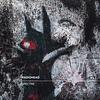Take a photo of a barcode or cover
Maxine Hong Kingston’s memoir, The Woman Warrior, published in 1976 tells in a fantastical blend of nonfiction and fantasy, the story of not only herself as a Chinese American woman, but also those before her like her Chinese immigrant mother and the aunt whose name is unknown to her. Despite being criticized for her portrayals of both Chinese culture and men, she remained dedicated to spreading and celebrating The Woman Warrior. Her memoir recounts the bravery not just of the women in the story, but of herself to speak up and bring to light the experiences and prejudices that Chinese women faced and how that affected their children born as Chinese Americans. Considering, family secrets and cultural expectations, The Woman Warrior is a critical look at speaking up and out when expected to stay silent.
emotional
fast-paced
For class, didn't read the whole thing. Good shit
There's no denying that Maxine Hong Kingston is an absolutely exceptional writer - her words paint vivid images and conjure emotions that are a mix of awe, fear, and disbelief.
However, I really did not enjoy reading The Woman Warrior .
This book was released in 1979, so, a long time has passed. Socially, a lot has changed in the world for China, Chinese Americans, Asia, and Asian Americans as a whole. I definitely think that the experiences written here will probably seem more relevant to people of an older generation, but as someone who was born in 2000, I personally could not relate that much and had a really difficult time seeing her version of China and Chinese America.
On the other hand, reading about early immigrants' stories and China's cultural and social state really opened my eyes to how people thought and why life for immigrants was so difficult. In seeing a perspective that is less prevalent today, I learned more about many Chinese immigrants before my parents' generation, and what exactly they had to go through to establish a stable life in the U.S. After reading The Woman Warrior, I have deep respect for what they had to endure and adapt to.
As this memoir focuses on women's oppression, it shows how gender is another intersection in an immigrant's life. Furthermore, it also shows a Chinese woman's life in China during the time period.
Some of the descriptions were very vivid, but very disturbing. Those scenes - and here I agree with The New York Times' review - "burns the fat right out of the mind." There's nothing further I want to know, because the descriptions almost tell me too much. I felt my insides shudder and twist, feeling super uncomfortable. While I do know about Chinese culture and have heard of most of the types of experiences MHK described, I have never felt as disturbed and frustrated as I did when I read this memoir.
I guess another reason why I didn't enjoy reading this is because of how women are treated, and again, I understand it's exactly what MHK wants to show: women's oppression throughout history. But for some reason I just had a difficult time going beyond what she described and thinking about the larger social issues she wanted to address. For me, there was simply too much going on at once that I couldn't digest everything before we moved on to yet another disturbing memory or sequence of events.
The supernatural elements also really confused me, such as.
Overall, I expected this book to be eye-opening and helpful in respecting my own culture better, but (while eye opening...) it did quite the opposite. This book, unfortunately, portrays Chinese more as barbarians with primitive ways (last chapter reference) than a group of people trying to work hard at finding better lives in the U.S. As a Chinese American, this book adds to the generally negative image of Chinese society and culture. Unfortunately, many experiences she outlined in the book is the reason why people have stereotypically negative views of the Chinese and stereotypically romanticize other East Asian cultures more.
I did read someone else's review before I wrote this, and saw MHK's answers to various critics' questions; I do understand that her story does not need to speak for other Chinese Americans' experiences, and what she described was crucial in shaping her life. Review: https://electricliterature.com/the-last-chinese-american-woman-writer-who-hasnt-read-maxine-hong-kingston-e3660fc1f3d
However, I did not like this book, despite its mastery of language, its unique form of storytelling, and its voice for women and immigrants as they were caught between ideologies and cultures.
Perhaps when I'm older I'll read The Woman Warrior again. Maybe then I'll appreciate it more and have a deeper understanding of its essence.
However, I really did not enjoy reading The Woman Warrior .
This book was released in 1979, so, a long time has passed. Socially, a lot has changed in the world for China, Chinese Americans, Asia, and Asian Americans as a whole. I definitely think that the experiences written here will probably seem more relevant to people of an older generation, but as someone who was born in 2000, I personally could not relate that much and had a really difficult time seeing her version of China and Chinese America.
On the other hand, reading about early immigrants' stories and China's cultural and social state really opened my eyes to how people thought and why life for immigrants was so difficult. In seeing a perspective that is less prevalent today, I learned more about many Chinese immigrants before my parents' generation, and what exactly they had to go through to establish a stable life in the U.S. After reading The Woman Warrior, I have deep respect for what they had to endure and adapt to.
As this memoir focuses on women's oppression, it shows how gender is another intersection in an immigrant's life. Furthermore, it also shows a Chinese woman's life in China during the time period.
Some of the descriptions were very vivid, but very disturbing.
Spoiler
Carving words into Mulan's back, the monkey feasting image, Brave Orchid telling Moon Orchid to demand her rightful place as first wife, cutting her tongue...I guess another reason why I didn't enjoy reading this is because of how women are treated, and again, I understand it's exactly what MHK wants to show: women's oppression throughout history. But for some reason I just had a difficult time going beyond what she described and thinking about the larger social issues she wanted to address. For me, there was simply too much going on at once that I couldn't digest everything before we moved on to yet another disturbing memory or sequence of events.
The supernatural elements also really confused me, such as
Spoiler
the sitting ghost in the dorm roomOverall, I expected this book to be eye-opening and helpful in respecting my own culture better, but (while eye opening...) it did quite the opposite. This book, unfortunately, portrays Chinese more as barbarians with primitive ways (last chapter reference) than a group of people trying to work hard at finding better lives in the U.S. As a Chinese American, this book adds to the generally negative image of Chinese society and culture. Unfortunately, many experiences she outlined in the book is the reason why people have stereotypically negative views of the Chinese and stereotypically romanticize other East Asian cultures more.
I did read someone else's review before I wrote this, and saw MHK's answers to various critics' questions; I do understand that her story does not need to speak for other Chinese Americans' experiences, and what she described was crucial in shaping her life. Review: https://electricliterature.com/the-last-chinese-american-woman-writer-who-hasnt-read-maxine-hong-kingston-e3660fc1f3d
However, I did not like this book, despite its mastery of language, its unique form of storytelling, and its voice for women and immigrants as they were caught between ideologies and cultures.
Perhaps when I'm older I'll read The Woman Warrior again. Maybe then I'll appreciate it more and have a deeper understanding of its essence.
reflective
sad
tense
medium-paced
Solid meh. A bit confusing at times, had its ups and downs.
https://m.youtube.com/watch?v=yChx0MAlZbM&list=PL9156A37193921175&index=15&t=0s
emotional
reflective
slow-paced
informative
slow-paced
had to read this fir class and man, this book was so hard to get through for me. simply not my cup of tea






